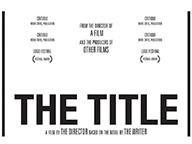Faculty News
—
Profs. Adam Alter and Deepak Hegde are named to the Poets & Quants "World’s Best 40 Under 40 Business School Professors" list
—

Excerpt from Poets & Quants -- "Alter provides Stern students with valuable insights into one of the most important skills in business: understanding what makes people tick. ... At Stern, Hegde has received extremely high ratings for his teaching in the part-time Langone MBA program. Of particular interest to his students may be Hegde’s research finding that venture capitalists are more likely to put money into startups with executives from the same ethnic background, and that when VCs and entrepreneurs shared the same ethnicity, startups were more successful."
Faculty News
—

Excerpt from Poets & Quants -- "Alter provides Stern students with valuable insights into one of the most important skills in business: understanding what makes people tick. ... At Stern, Hegde has received extremely high ratings for his teaching in the part-time Langone MBA program. Of particular interest to his students may be Hegde’s research finding that venture capitalists are more likely to put money into startups with executives from the same ethnic background, and that when VCs and entrepreneurs shared the same ethnicity, startups were more successful."





















